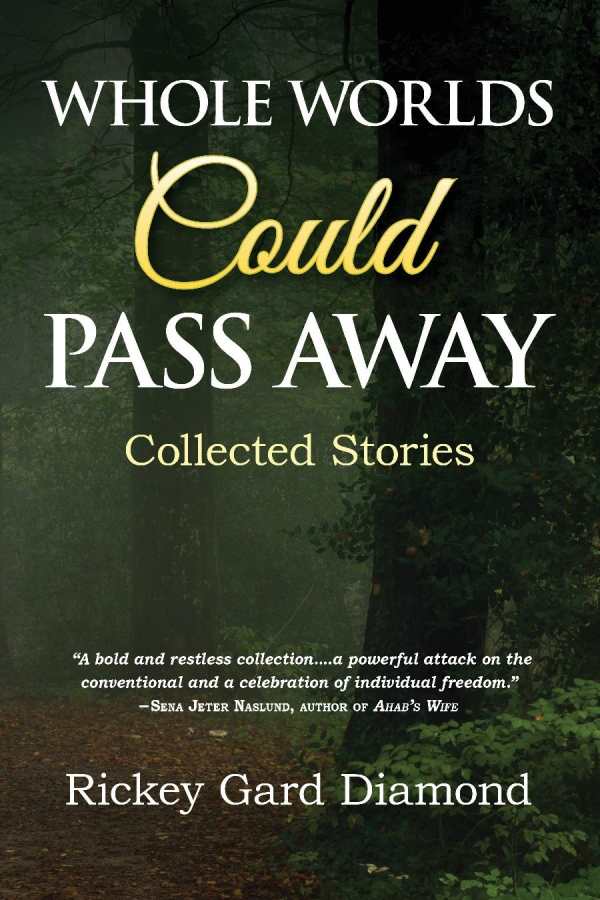Whole Worlds Could Pass Away
Collected Stories
Spare yet deep, these stories engage from their first sentences, striking common and affecting chords.
Delivered with efficient mastery, Rickey Gard Diamond’s collection of short stories, Whole Worlds Could Pass Away, offers up thoughtful and evocative stories that summon themes of lost love, disappointment, sexism, and familial rifts. Brief and thorough, these engaging stories explore the human condition and resonate with meaning.
The eleven short stories in the collection are deep and are effectively sketched with details that bring their people and places to life. A few reach into the past, like “Black Bears,” which ponders loss and familial splits brought about by the Vietnam War. Characters share deceptively simple yet profound memories. “Goldfish” is another tale pondering broken family ties. It is narrated by Ann, who cannot grasp why her traditional mother lacked interest in her hopes and failed to encourage her yet supports the aspirations of an unconventional granddaughter, Alex.
Timely and haunting, “Walls” is also driven by a ruminative character. She is unnamed, and haunted by a past sexual assault. She questions everything: her upbringing, workplace behavior, society’s standards, and whether she may have instigated the rape.
One of the longest stories, “The Passing of McClusky,” is a melancholy look at lost love, aging, and modernization. The setting is Doc Garren’s drugstore, with its built-in soda fountain—a holdout among chain pharmacies. The pharmacy is a keeper of memories, shown to be the setting for pivotal moments in Garren’s life, including his first sighting of his future wife, whom he later lost to childbirth:
Take your eyes off what you should be looking at just for one moment and whole worlds were likely to pass away.
His memories prove to be as vibrant as the jars of colored water that sit along the windowsills. The story glows with poignancy and somber reflection.
Though concise, these stories show an astounding ability to connect people through common experiences and emotions. They leave a distinct impression, whether of sorrow or nostalgia. Spare yet deep, these stories engage from their first sentences, striking common and affecting chords.
Many characters are recognizable. Some are wizened and humorous in their thoughts and actions, like Mossy McWhirter in “The Visitation,” which ends with an intriguing take on death. Details are tasteful and precise, scenes are picturesque, and dialogue is relatable. Stories are paced smoothly and effectually, and lead toward distinct conclusions that are reflective and wistful.
Enlightening and satisfying, Whole Worlds Could Pass Away deftly handles common themes and renders ordinary experiences resonant for its audience, even long after the stories end.
Reviewed by
Felicia Topp
Disclosure: This article is not an endorsement, but a review. The publisher of this book provided free copies of the book and paid a small fee to have their book reviewed by a professional reviewer. Foreword Reviews and Clarion Reviews make no guarantee that the publisher will receive a positive review. Foreword Magazine, Inc. is disclosing this in accordance with the Federal Trade Commission’s 16 CFR, Part 255.

